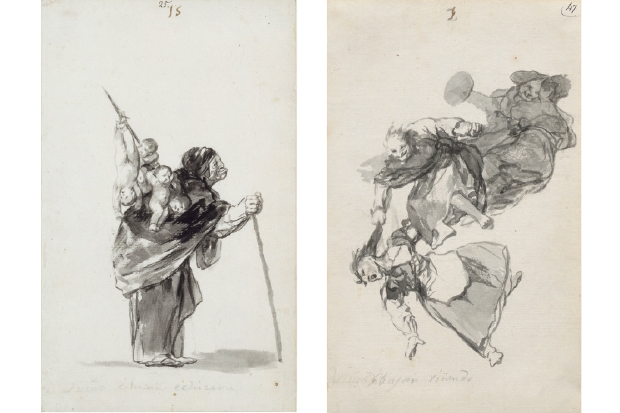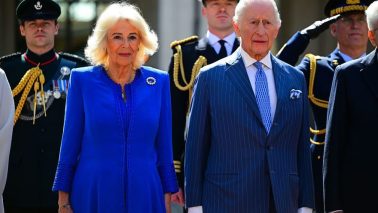‘Plunderers of the air’, Naum Gabo called the Luftwaffe planes. In Cornwall, during the second world war, Gabo kept cuttings of the attacks over London. One newspaper photo, pasted in his diary, was taken from the Golden Gallery of St Paul’s after a night of incendiary bombs. London looks like Pompeii. Enemy planes were a betrayal.
Gabo was entranced by flight. His sculptures are spiralling tributes to air, light and lift-off. After an hour in the Naum Gabo retrospective at Tate St Ives, the first major show of the artist’s work for more than 30 years, you feel a certain springiness about the knees as if you could push off Porthmeor Beach and fly. The Icarus effect.
Gabo was entranced by flight. His sculptures are spiralling tributes to air, light and lift-off
Born Nehemiah Pevsner in south-west Russia in 1890, Gabo studied medicine, natural sciences and philosophy in Munich, before returning to Russia in 1917 where he practised as an artist in the all-things-possible period that followed the Russian Revolution.

Get Britain's best politics newsletters
Register to get The Spectator's insight and opinion straight to your inbox. You can then read two free articles each week.
Already a subscriber? Log in







Comments
Join the debate for just £1 a month
Be part of the conversation with other Spectator readers by getting your first three months for £3.
UNLOCK ACCESS Just £1 a monthAlready a subscriber? Log in